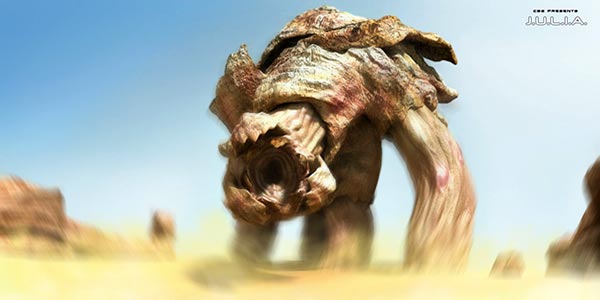Some video games have budgets in the tens of millions of dollars and development teams consisting of hundreds of people, but the indie gaming community is still going strong and hard-working developers can bring a game to the market, even with a dev team of just two people. Such is the case with the new science-fiction adventure game J.U.L.I.A.
J.U.L.I.A. is set in the future when man has begun to colonize space. It begins with a scientist, Rachel Manners waking from cryogenic sleep to discover that she is the only crewmember left on her ship. Her only companions are the ship’s Artificial Intelligence, J.U.L.I.A., and a “Mobile Robot” called the Mobot. Together they’ll have to repair the ship and discover what happened to the rest of the crew.
A playable demo came out earlier this week and we got a closer look at the game. J.U.L.I.A. is built on the Wintermute game engine which is used for point & click adventures. The demo shows a blend of play styles rather than a straight point & click game. While this is just a demo, the game comes across as a compilation of minigames held together by cutscenes.
After being filled in on the backstory as Rachel awakens from cryosleep, players will have to make it through a mining minigame that is very much like the mineral mining sequences in Mass Effect 2. It’s slightly more complex and has more challenge, but still boils down to roaming your mouse over a map and trying to find the right spot to click on.
Once that’s complete, another kind of game begins in which Rachel has to use the minerals she’s mined to repair the ship. This one requires greater reflexes and precision by making players grab mineral icon and drag them onto the screen at the right moment. Neither of these minigames is particularly engrossing, but once they’ve been completed the story begins to progress as the game switches to a sort of text adventure.
This sequence involves dispatching the Mobile Robot to a nearby planet. While there is art and video, the interface feels like an old text adventure as Rachel orders the Mobot around through simple commands like “Go forward” or “Examine area” and such. It is in this part of the demo that J.U.L.I.A. is most impressive.
As the Mobot explores, there are more puzzles to solve and a hacking minigame too. This minigame is a bit more interesting as it is very short and integrated into the story better. Yet more minigames and puzzles surface later in the demo, and some of them are genuinely challenging.
As the story begins to develop it does get rather interesting and gamers who enjoy a bit of mystery or horror mixed in with their science fiction will probably take a liking to this game.
J.U.L.I.A. is only available for PC at the moment. The demo can be downloaded now from the J.U.L.I.A. website, and the full game becomes available via digital distribution this week at the price of $29.99.



0 Comments